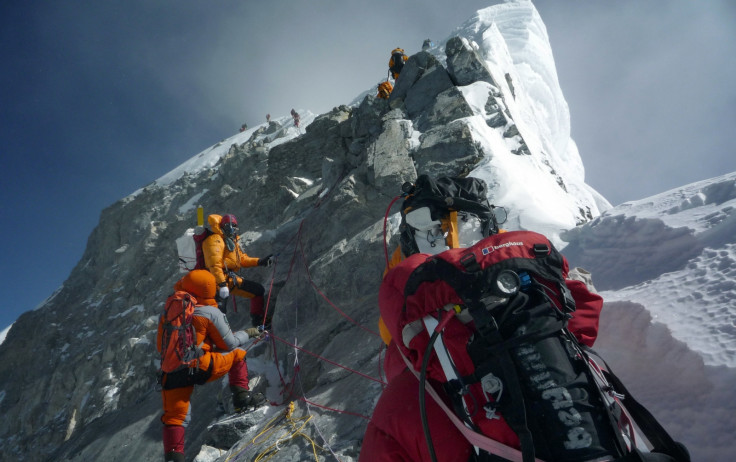Nepal bans solo travellers from trekking mountains without guides
Nepal is home to some of the world's tallest mountains, including the mighty Mount Everest.

Nepal has decided to impose more regulations to increase the safety of the thousands of tourists that visit the Himalayan state every year for trekking and climbing. The move is also aimed at boosting revenue and employment opportunities.
The government has decided to make it mandatory for backpackers, solo or in groups, to be accompanied by a licensed local guide while trekking the mountains of Nepal.
The new rules will come into force on April 1, 2023, and will be applicable to international tourists. Locals will be exempted from these regulations because of their familiarity with the region. These rules will also be applicable to cyclists and hikers.
"The two main objectives behind the ban are to make trekking in Nepal safer and to create more employment opportunities in the country," Mani R Lamichhane, Director of the Nepal Tourism Board (NTB), told CNN.
"When you are travelling solo, in case of emergencies, there is no one to help you," he said. "It is fine if they are travelling in the cities, but in the remote mountains, the infrastructure is not adequate," he added.
Tourists will have to source their guides through trekking agencies registered with the Trekking Agencies Association of Nepal (TAAN).
They will also have to obtain a TIMS card (Trekkers' Information Management System) from their trekking company. TIMS is essentially a trekking permit needed to be obtained by foreigners for adventure tourism.
Nepal is home to some of the world's tallest mountains, including the mighty Mount Everest. It is famous for its beautiful trekking regions. Mountain climbing and tourism are two of the main sources of income for Nepal
Every year, a number of people try to ascend Nepal's lofty and dangerous peaks, but only a few succeed. Several people have lost their lives over the years trying to scale these mountains.
According to the NTB, more than 171,000 visitors went trekking in the country in 2019, and as many as 27 per cent of them chose to go trekking without a guide or a porter.
Each year, 10-15 hikers go missing in Nepal, and most of these tourists are "free independent trekkers," claims Nilhari Bastola, president of the Trekking Agencies Association of Nepal, per The Kathmandu Post.
Several reports in the past claimed that the Nepalese government's lax rules when it comes to granting permits to climbers contributed to the increasing death toll on mountains like Everest.
The region above 26,000 feet on the mountain is called the "Death Zone," where all but the most experienced climbers need to breathe fresh oxygen from canisters. But even experienced climbers sometimes need their oxygen bottles.
Hundreds of dead bodies still remain in the ice on the mountain's side. However, no one exactly knows how many dead bodies remain on the highest peak, which reaches a height of 8,848m (29,029 ft), but it is certain that the number is more than 200.
Possibly the most famous of all are the remains of Tsewang Paljor, who tried to climb Mount Everest back in 1996. He died after being trapped in a snowstorm. Paljor is commonly referred to as Green Boots because when the tragedy occurred, he was wearing a pair of green boots. It is said that the climber's body is still in the same cave where he died, at nearly 28,000 feet.
The death of George Mallory, at age 37, was also very terrifying. Mallory, a teacher by profession from England, tried his journey in 1924 with Andrew Irvine. It was said that both of them died while venturing away from their 21,000-foot campsite when they slipped a few hundred metres down the mountain. However, Mallory's body is still very well preserved to this date. It has been resting there for close to a century.
Despite the unfortunate incidents, Nepal has remained a favourite of climbers, trekkers, and mountaineers. Thousands of tourists flock to the country every year to witness the beauty of its remotest regions.
© Copyright IBTimes 2025. All rights reserved.






















